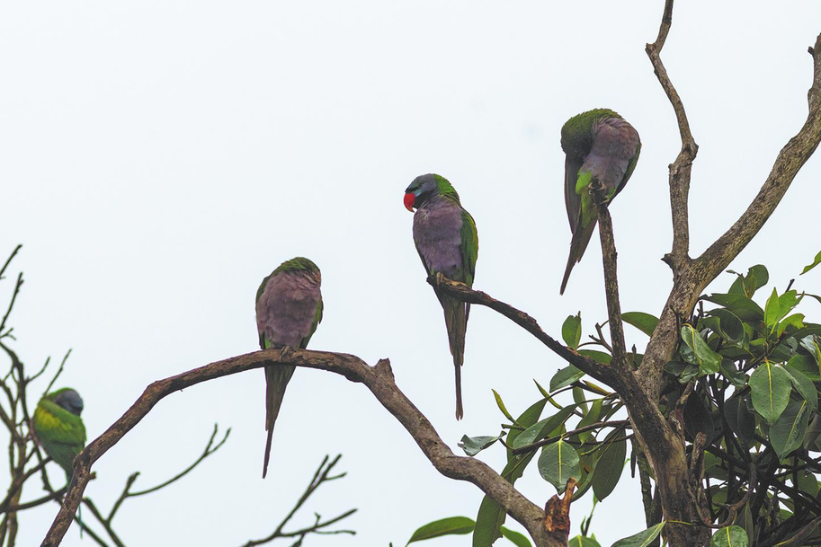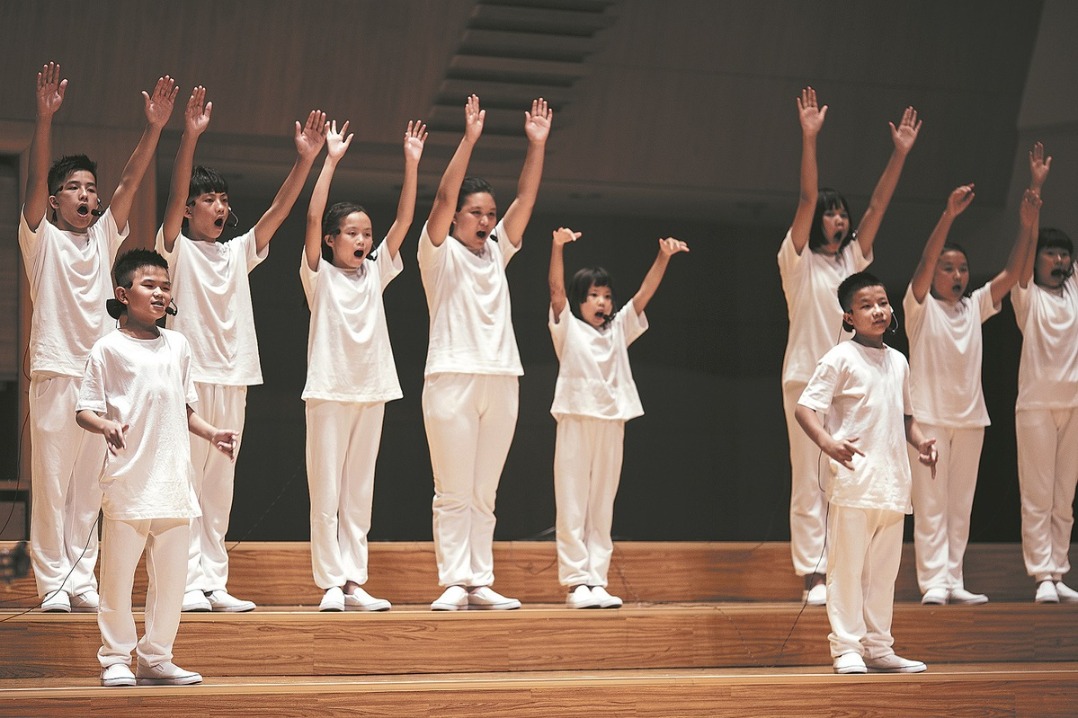Traditional ceremony showcases traditions of the Bai ethnic group

Dong Jinxiang remembers waking up to an aroma as her grandfather placed a pot on a charcoal fire. Her grandmother made a flat local cheese known as rushan, as Dong enjoyed three courses of tea with members of the Bai ethnic group.
Dong is now a prefecture-level inheritor of this tea practice, which is also one of 44 registered national-level intangible cultural heritage entries related to tea in China. She often makes tea and passes on its traditions to tourists visiting her hometown of Zhoucheng village, Dali Bai autonomous prefecture, Yunnan province.
On Nov 29, traditional tea processing techniques and their associated social practices in China were added to UNESCO's Representative List of the Intangible Cultural Heritage of Humanity.
"As an inheritor of tea culture, I was extremely proud and happy to hear this news," Dong said.
Traditionally, tea leaves are placed in a pot on a fire and shaken about 100 times until the aroma of the drink emerges. Boiling water is then poured into the pot for the first course of tea, which is usually bitter.
The second course is served with sugar and rushan, before other items are added, making the tea sweet. For the third course, Sichuan pepper is added with ginger, cinnamon and honey, giving a bitter, sweet and spicy taste, and a rich aftertaste.
Sha Yushuang, director of the Dali Intangible Cultural Heritage Protection and Management Institute, said: "The three tea courses represent the tastes of life. The first course indicates the beginning of life, but difficulties often appear. The second course means that after striving to conquer these difficulties sweetness is found in life, and the third symbolizes the need to experience various tastes in life so that it can become increasingly colorful."
Dong said the practice, which dates to the Nanzhao Kingdom (AD 738-937), when Nanzhao kings traditionally received envoys, later spread among the public. The renowned Ming Dynasty (1368-1644) explorer Xu Xiake (1587-1641) also recorded this practice in his travel notes.
"Bai people offer the three tea courses to guests, and the ceremony is used for important occasions such as weddings, funerals and festivals. It has different forms for different occasions," Dong said.
Sun Dongning, executive director of the National Intangible Cultural Heritage Exhibition and Research Center, said: "During the long history of Chinese people drinking tea, they have formed many different habits, with a diverse range of styles... These styles reflect the outlook on life and the values of Chinese, and are engraved on the hearts of all Chinese people."
Zhoucheng, in the Dali area of Yunnan, is one of the largest villages inhabited by the Bai people in China, and Dong said it preserves the Bai culture well, especially the ethnic group's habits and costumes.
In 2008, Dong set up a company to showcase the tea practice for tourists. Visitors gain an immersive experience by taking part in the tea ceremony.
Ten years later, a training institute was established with the help of the local authority in Zhoucheng, and Dong now organizes free courses for villagers and students at Yunnan University.
"I will improve my ability to spread this traditional custom, to enable more people to get to know about it, accept it, appreciate it, pass on this knowledge, and promote the development of tea culture in Dali," Dong said.
Wang Kaihao contributed to this story.






























